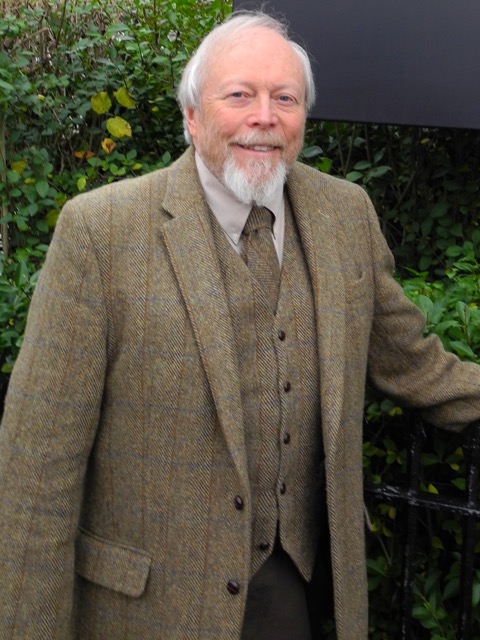Getting Yourself Out Of The Way: The Self-Vigilant Coach – Part One

“Getting Yourself Out Of The Way.” What’s that really mean? There are many ways in which the coach can interfere in the coaching process and “get in the way” of the client’s own coaching work. Our own agendas, attitudes, beliefs, prejudices, projections and unfinished emotional business can all impede the coaching process. In this two part series we’ll increase our awareness of how “our stuff” gets in the way of our client’s progress and look at how to eliminate our blind spots.
The Coach's Agenda
In wellness coaching it is easy for coaches to subtly promote their own favorite package of dietary, exercise and stress management advice. When I’ve observed this in coaching students it is seldom about their own ego getting in the way, though I’ve seen this a few times, but rather about the zeal the coach feels for certain wellness approaches. They really believe that certain diets, fitness programs, or stress reduction approaches are really fantastic and they want to share this with heart-felt conviction! Coaches also fall into the trap of promoting their own favorite ways to be well because they stray from the coach approach and feel that if they just tell clients what to do it will save so much more time. This can show up in leading questions that manipulate the client to select a course of action that the coach was consciously or unconsciously promoting. Lastly, if coaches are crossing the ethical line into promoting their own money-making products as part of the coaching there is a serious problem.(Consult: https://ichwc.org/wp-content/uploads/2018/04/Final-Code-of-Ethics-Feb-1-ICHWC-1.pdf)
 Convincing & Persuading
Convincing & Persuading
Coaches may get ‘hooked in’ to almost desperately wanting their client to improve their lifestyle because they truly care about the person and hate to see them engaging in so much self-defeating behavior and suffering. Straying from the coach approach they attempt to convince or persuade the client to be well. “If they would only…!”
A well-known Motivational Interviewing trainer often begins his talks by extolling each of the audience to “Give up your job!” He argues, as do I, that holding on to thinking that you can be successful while attempting to convince or persuade people to be well, is about as self-defeating as the client behaviors we are attempting to change! Yet many of us in the wellness and health promotion fields and medical professions find ourselves spending years doing just this. The exasperation that finally comes from this fruitless way of working with clients and patients is often what drives these human-helpers to look for a better way, and what often leads them to coaching. Tired of pushing or pulling people up the mountain of lifestyle improvement, one finally asks “How’s this working for me?” The challenge for the coach is to become aware of their tendency to continue this process of convincing and persuading.
 My Way Is The Way
My Way Is The Way
Beginning coaches also have to be vigilant about how their own path to wellness may interfere with their client work. We have trained many wellness coaches who were attracted to the fields of healthcare, human helping, and wellness because they were able to meet and overcome a serious health challenge by, at least in part, improving their own lifestyle. When I’ve trained counselors and psychotherapists I would sometimes come across students who had been through either divorce, alcoholism, or some such experience and deeply believed that what had helped them to get through those experiences was exactly what all their clients had to do as well. This was, of course, an often-disastrous course for their therapy clients attempt to take. In wellness coaching, we come across students, on rare occasion fortunately, who have a similar allegiance to some sort of holistic health path, or wellness formula that helped them and now they feel the need to proselytize.
“Well, what worked for you?” clients often ask. Here the coach has to proceed very carefully. We can use some appropriate self-disclosure, but rather than answer the question directly, the coach might ask, “So what are you hoping to gain by hearing about my experience?” Often that client’s question is coming out of a place of low self-efficacy. They have had little lasting success at lifestyle improvement, so they are looking to you, the expert to show them a better way. We have to determine if this is a time to provide some information/education, make an effective use of self-disclosure, or is it a time to empower the client to continue to seek their own answers. The vigilance comes in when we catch our own tendency to slip into the expert role.
Illuminating Blind Spots
Part of mastering wellness coaching is narrowing down our blind spots as much as possible. Some lack of awareness, even some self-deception may still remain, but out job is to increase our awareness both in retrospect and in the moment. We make great headway with this when we accept responsibility for our own feelings and reactions. The values and lifestyle of our client may be 180 degrees different than our own. We may be appalled at the self-defeating behavior we see the client exhibiting and rush to judgment. Our “Right-ing Reflex” (as the Motivational Interviewing Folks call it) kicks in. We may have a personality that pushes us to “straighten out” a client’s way of operating in this life. Part of our effective vigilance is noticing when we are pressing a client about how they “ought” to live. Can we allow the client to live their life without our “interference”? Coaching should never interfere with someone’s life, unless it is a situation of safety (see below).
When we blend in some wellness/health education, how neutral do we stay when it comes to any of the numerous controversial healthy living debates? “Saturated fat is fine. Enjoy!” “Saturated fat will kill you!” Can we act like a true professional and coach our client to find out their own answers from a variety of trusted, evidence-based sources?
Thoughts To Ponder On The Mastery Path
Experiment with entirely eliminating the phrases
“You need to…”
“Your ought to…”
“I want you to…”
from the way that you coach with people.
 Distinguishing Between Our Own Agenda And Client Safety
Distinguishing Between Our Own Agenda And Client Safety
Coaches are not responsible for the choices their clients make. However, if your client is riding his wellness bicycle towards a known cliff, we do have an ethical obligation to share what we know about the landscape ahead. Those who have heard me conduct coach trainings know that I’m fond of presenting this ethical quandary: Let’s say your client says – Hey coach! I’m going to start The Twenty-Seven Grapefruit A Day Diet! All I have to do is eat nothing but 27 grapefruit everyday for a month and the pounds will just drop away like magic! Will you support me in this coach? We love to say that in coaching “The client’s agenda is THE agenda.” This does not mean, however that we can’t operate on one important caveat – the safety of our client. Now, unlike the obvious cliff our grapefruit-dieting client is headed for, most of our clients present more ambiguous situations and questions. For example, there are a number of immensely popular diets out there, which promise extraordinary weight loss results, but have more recently been shown, to present medical risks and/or have an abysmal record of sustainable results. What is the coach to do when the client presents a plan to follow such a diet?
Our first step is to monitor ourselves and ask if our desire to have our client think twice before they launch forth with a potentially self-defeating, if not self-destructive course, is motivated by what we know of the facts, or our own prejudices. Are we aware of evidence that puts their course of action in serious doubt, or are we instead simply favoring some alternative that we are fans of?
The second step would be to inquire what the client knows about this course of action (diet, or whatever wellness/health promoting idea). How did they become aware of it – through what sources? What do they know of the integrity of this action course? Are they aware of contradictory evidence regarding this way of attempting to be well? The coach can strongly recommend that the client check this out with their treatment professionals or trusted educational professionals. The coach can help the client to carefully examine their options. If the client insists on carrying out a course of action the coach truly feels is detrimental to the wellbeing of the client they can directly share that with the client. If the client still persists on moving ahead with their plan, the coach can share with the client that they will not be able to support the client in doing so as part of their coaching together.
Tips For Eliminating Blind Spots
The biggest problem with our blind spots is that, by definition, we are not aware of them. Here are some tips for minimizing these hazards.
• Coach with a tri-fold awareness of what is going on with 1) yourself – emotions, bodily sensations, intuition; 2) your client ¬– keenly observe communication on verbal and nonverbal levels, pick up on emotions not just content; and 3) the coaching relationship itself and process this with your client if needed.
• Record your client sessions (with permission) and listen to them carefully with the ideas from this blog in mind.
• Seek out a mentor to help you grow as a professional skilled coach, and/or work with a supervisor at your workplace if you are in such an employment setting.
• Coach bravely (see my previous blog: “Seven Expressions Of Courageous Coaching” – https://wp.me/pUi2y-ie ) by exploring with your client their satisfaction with the coaching they are receiving. Explore together how it can be improved. Be willing to look at what doesn’t “feel right”.
• Perhaps most importantly, do your own work. That is, continually grow by being willing to work through your own “unfinished business” of an emotional nature.
Part Two
 In Part Two of this blog series, we will look at the concept of Projection, in all of its forms, and how it can significantly sabotage our best coaching efforts.
In Part Two of this blog series, we will look at the concept of Projection, in all of its forms, and how it can significantly sabotage our best coaching efforts.








Only registered and logged in readers can leave comments.